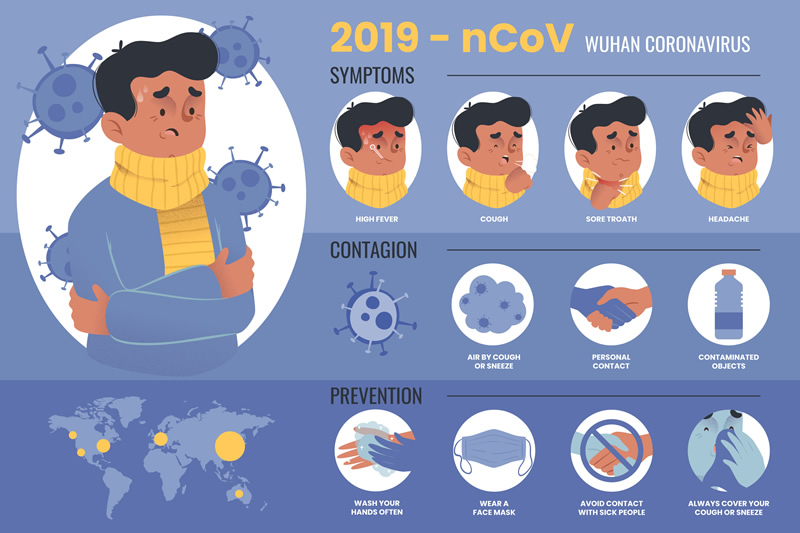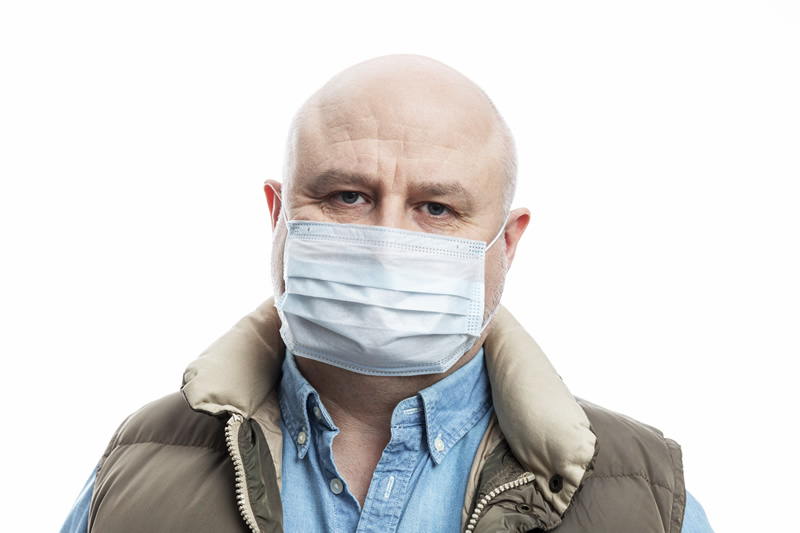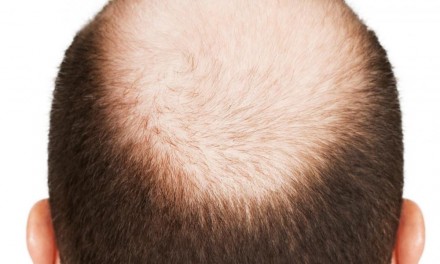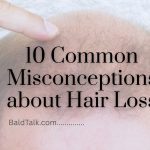Are you interested in finding out whether bald people are at a higher risk of catching COVID-19? Perhaps you or someone you know is bald, and you’re wondering whether there’s any scientific proof that being bald puts you at more risk. Scientists have proven that the older generation is more likely to die from coronavirus, but are bald men more at risk? Or is it just that a high percentage of older men are bald? This article will attempt to answer these questions and look at what scientists have to say.
Is there a connection between being bald and COVID 19?
Evidence shows that bald men could be at higher risk of suffering from COVID-19 severe symptoms. It seems that bald men are more likely to end up severely ill and in a hospital with COVID then other groups. It’s debatable what the cause of this is. Male hormones could play a part, or it could just be that COVID has affected the elderly population more. Several studies have been done on the subject across America, the UK, and Europe.
Men, in general, are more likely to die from Coronavirus then women, and data from across the globe shows that more men have been killed or been seriously ill. The statistics also show that a high percentage of the men that died have been bald. Many scientists think that baldness should be considered a risk factor as the link between baldness and COVID is strong. There have even been suggestions that baldness should be named the “Gabrin sign,” after a doctor in the US who died of COVID-19. Dr. Frank Gabrin was the first American doctor to die of the virus, and he was bald.
Professor Carlos Wambier is one of the key figures researching whether bald men are more at risk. He works at Brown University and thinks that baldness should be used as a predictor of coronavirus and how severe it’s likely to become in patients. Professor Wambier thinks that male hormones play a part in the coronavirus, and these are the gateway for COVID to enter male cells.
Across the globe, research has come to similar conclusions. In the UK, Public Health England has proven that working-age males are twice as likely as women to die if they catch COVID-19. Scientists thought that this could be due to lifestyle factors such as smoking, drinking, and the male immune system. In recent weeks researches have begun looking at male’s sex hormones known as androgens. Hormones such as testosterone, which are found to cause hair loss and balding, have been found to boost the coronavirus’s ability to attack cells. Therefore, it’s more likely that when a male catches coronavirus, their bodies and immune systems are less prepared to fight it. When a balding male catches the virus, this is likely to be catastrophic.

Scientists in the US are now developing treatments that suppress male hormones. Similar therapies have been used for baldness and to reduce the spread of diseases such as prostate cancer. Its hoped that similar treatments would slow the virus down and give male patients the time their immune system needs to fight it off.
Another trial is being developed by an oncologist, Matthew Rettig, at UC Los Angeles. Two hundred veterans, many of whom are bald in Los Angeles, Seattle, and New York, are being prescribed drugs usually used for prostate cancer. The trial has been inspired by research carried out in Spain, which showed that a very high percentage of patients admitted to hospital with COVID-19 had male pattern baldness. A study undertaken by doctors in Madrid showed that 79 percent of men in three hospitals in the city were bald.
The Journal from the American Academy of Dermatology has published a similar study that showed that of 122 patients, 71 percent were bald. The rate of baldness in men of a similar age to the patients that were studied is between 31-53 percent. This shows that these men are more at risk as a high percentage of men admitted to the hospital were bald. There have also been studies carried out on women who are suffering from alopecia. Although a smaller number of women than men are bald, their hair loss is linked to androgens.
Doctors who treat prostate cancer know that androgens can play a role in the formation of disease. With prostate cancer, patients’ hormones stimulate an enzyme, which causes cancerous cells to grow. At the beginning of the epidemic, a research paper was published in the journal Cell. The research showed that the enzyme TMPRSS2, which is linked to prostate cancer, and balding is also present in coronavirus infections.
The coronavirus infects cells by using a spike protein, which causes the cells membrane to bind together. An enzyme activates this process, and scientists have found that TMPRSS2 is likely to be the enzyme, especially in bald men. Doctors and researchers are trying to find out if enzymes and androgens in the lungs will react in the same way as they do in the prostate. If these enzymes react in the same way, it means that prostate drugs can be used to treat COVID patients. There is evidence that supports this link, and scientists are hopeful that treatments will work. However, many scientists think that more research needs to be done.
Studies have been carried out in Italy using 9,280 male patients. The researchers found that the men who had prostate cancer and were being prescribed androgen-deprivation therapy to reduce their testosterone levels were less likely to catch COVID-19. It was proven that these men were 75% less likely to contract Covid-19 than men with prostate cancer who were being prescribed with other treatments.
Conclusion
It seems like there is a lot of evidence that there’s a link between COVID-19 and baldness. Scientists seem to have found a relationship between the male hormones that cause baldness and coronavirus. Other scientists think that more work needs to be done, and some are even skeptical that the result show bald men are more at risk. Some believe that the evidence shows that men in general and especially older men have more severe symptoms but question whether this is actually to do with baldness.
Karen Stalbow, who is the head of Prostate Cancer UK, says that there has been a lot of promising research that indicates a link between male hormones and increased risk of coronavirus. This has led to research into whether enzalutamide, commonly used for prostate cancer patients, could reduce the risk.
Most of the research that has been undertaken so far have been in labs rather than on real patients. There is conflicting evidence about whether these types of hormone treatments would have the same effect on cells in the lungs as they would in the prostate. At present more clinical trials are being carried out to address these issues and find the necessary evidence that’s needed. Its hoped that researches will soon know how effective hormone therapies will be at treating COVID-19.
Sources:
https://www.jaad.org/article/S0190-9622(20)30948-8/abstract
© 2016-2020 by BaldTalk.com, an LiVenture.
All rights reserved. No part of this document may be reproduced or transmitted in any form or by any means,
electronic, mechanical, photocopying, recording, or otherwise, without prior written permission of LiVentures.












